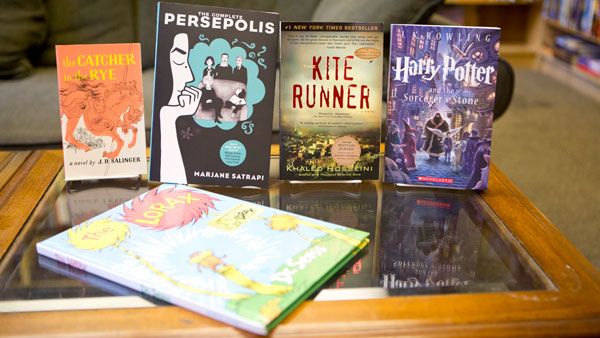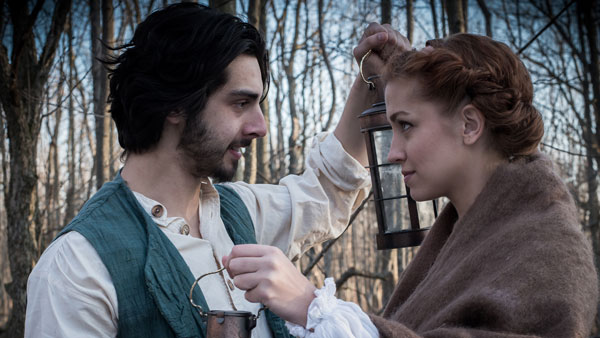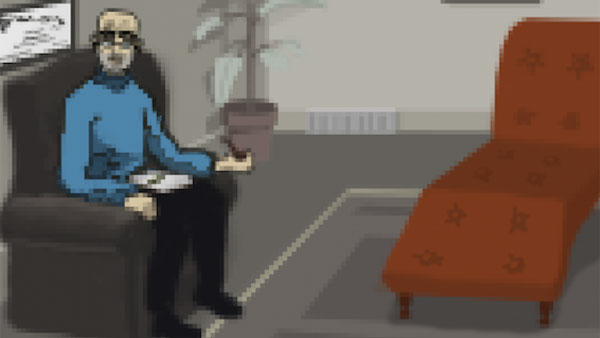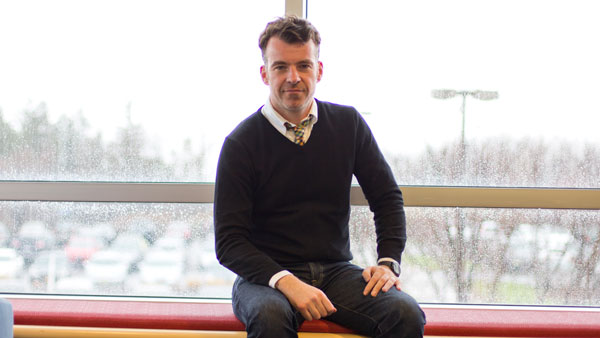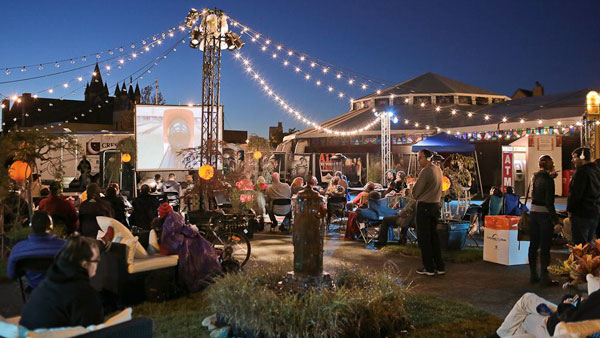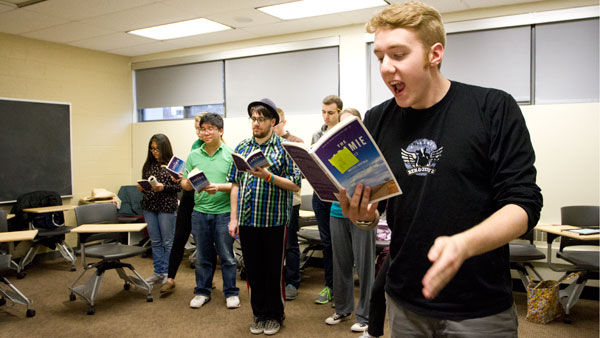Since 1982, schools and universities across the country have rallied together during Banned Books Week to raise awareness of censorship — and this year, Ithaca College will join them.
To celebrate Banned Books Week, which runs Sept. 22-28, the college will host its first Banned Book Read Out from 12:10–3 p.m. Sept. 26 at the Handwerker Gallery. Participants will read aloud 10-minute segments from challenged or banned books, like Dr. Seuss’ “The Lorax” and J.K. Rowling’s “Harry Potter.” Nonfiction, plays and journalistic and scientific writings are also welcome.
Judith Andrew, the college library’s music materials coordinator, was inspired to get the college involved in Banned Books Week after attending the annual conference of the New York State Library Assistants’ Association in June. She said she modeled the event after SUNY-Plattsburgh’s 2012 Banned Books Read-Out.
“Libraries are great supporters of freedoms, and I think that this is very much connected to that,” Andrew said.
In 2008, the college chose Marjane Satrapi’s autobiographical graphic novel “Persepolis” as its First-Year Reading Initiative selection. The novel chronicles Satrapi’s childhood in the aftermath of the 1979 Iranian Revolution and discusses themes such as sacrifice, patriotism, prejudice and liberty.
Earlier this year, the Chicago public school district removed “Persepolis” from its seventh-grade curriculum on the grounds of “graphic language and images” that were deemed “inappropriate” for students of that age, according to the Huffington Post. Ironically, the novel begins when Satrapi is 10 years old — younger than the average seventh-grader.
“You want to think like, ‘Oh, [censorship] is history. This can’t happen today,’” Cathy Michael, communications and legal studies librarian, said. “But it still happens.”
According to Robert P. Doyle’s 2012-2013 list of “Books Challenged or Banned,” sex, profanity and racism are the top three grounds on which books are considered objectionable. However, Andrew said organizations may want to ban books because of “offensive” subjects.
Senior Seth Waters kept this in mind when choosing a passage from Toni Morrison’s “Beloved,” which involves bestiality, to read at the event.
“At one point they discuss — rather grotesquely — slaves copulating with cows, and that’s obviously going to be the excerpt I read,” Waters said. “One of the points of a banned book festival is to highlight the reason books were banned.”
However, Waters said books with controversial themes should not be taught for the purpose of creating controversy, but for inspiring discussion and critical thinking.
“A book should never be banned, but the books that should be taught are the ones that accomplish more than one thing,” he said.
Organizations aren’t the only ones that restrict literature — parents are also perpetrators of censorship. In May, a Michigan mother petitioned the school district to switch to an abridged version of Anne Frank’s “The Diary of a Young Girl” — one without intimate details of Frank’s sexual awakening. The school board ultimately rejected her proposal.
“It’s one thing for you to say, ‘Oh, my son or daughter — I don’t want them to read that,’ or ‘I don’t want to read that,’ but to impose it on others, to restrict others is the problem,” Michael said. “It can become a slippery slope. First this, then what’s next? And then more and more get banned, and we lose more and more freedom, so we just want to protect that freedom of expression.”
Waters said if schools choose to teach literature with difficult or controversial themes, they should focus on expanding students’ knowledge on the subject in order to form their conclusions.
“What’s the point of education if by the end of it, people don’t know how to learn?” he said.
The Banned Book Read-Out will be held from 12:10–3 p.m. Sept. 26 in the Handwerker Gallery. Participation is open to the entire college community. Sign up by visiting http://www.signupgenius.com/go/10C0D49A5A628AAF94-banned


